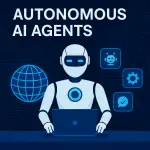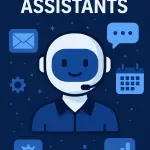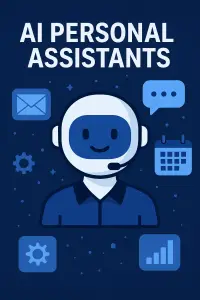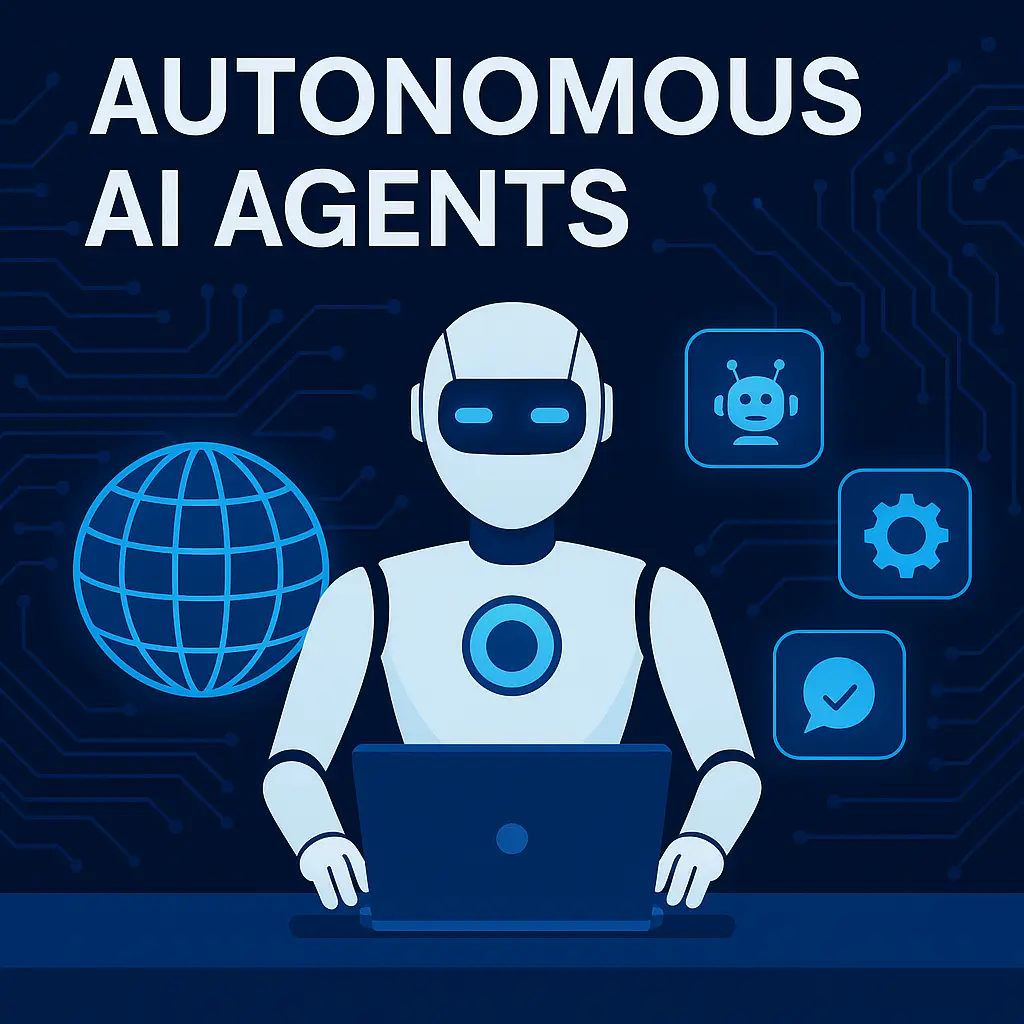
In 2025, one technology stands out as both revolutionary and rapidly evolving: Autonomous AI Agents. These self-operating digital entities are not just enhancing productivity — they’re redefining how work is done across industries.
From AutoGPT and AgentGPT to custom-built task handlers, these agents can complete complex, multi-step tasks with minimal human intervention. Whether it’s automating customer service, writing code, researching topics, or managing workflows, AI agents are moving from novelty to necessity.
In this in-depth article, we explore:
- What autonomous AI agents are
- Why they are the biggest tech trend in 2025
- Use cases across various industries
- The most powerful tools available today
- Challenges and ethical considerations
- What the future holds for AI agents
What Are Autonomous AI Agents?
Autonomous AI agents are advanced software programs that can plan, reason, and execute tasks independently. Unlike traditional automation scripts, AI agents combine language models (LLMs) like GPT-4 or Claude with tools, memory, and decision-making frameworks.
These agents use feedback loops, long-term memory, APIs, and multi-modal inputs to complete goals with minimal human input. You don’t tell them exactly what to do — you give them the objective, and they figure it out.
Example:
- You tell an agent, “Build me a website with a homepage, about page, and contact form.”
- The agent searches documentation, writes the code, tests it, and delivers a working product.
Why Are AI Agents the Hottest Tech Trend in 2025?
- They Save Massive Time – AI agents handle 20+ tasks in the time it takes a human to complete one.
- They Learn Autonomously – Many have memory and can improve over time.
- They’re Versatile – From research to engineering, they serve every sector.
- They Integrate with Tools – Most connect to browsers, APIs, databases, and platforms like Zapier.
- They’re Scalable – A company can run hundreds of agents 24/7.
Major corporations like Google, Microsoft, and OpenAI are all heavily invested in autonomous agents as the next layer of digital infrastructure.
Real-World Use Cases
💼 Business & Operations
- Automate customer service via email/chat
- Handle appointment scheduling
- Generate reports, market research, and analysis
🧠 Education
- Personalized tutoring agents for students
- Automated content generation and curriculum design
💻 Software Development
- Write front-end and back-end code
- Test and debug software
- Maintain project documentation
📊 Finance
- Run simulations for stock predictions
- Analyze market sentiment from news & Twitter
- Automate invoice and billing systems
🏥 Healthcare
- Process insurance claims
- Pre-diagnosis triage bots for patient queries
- Drug interaction research
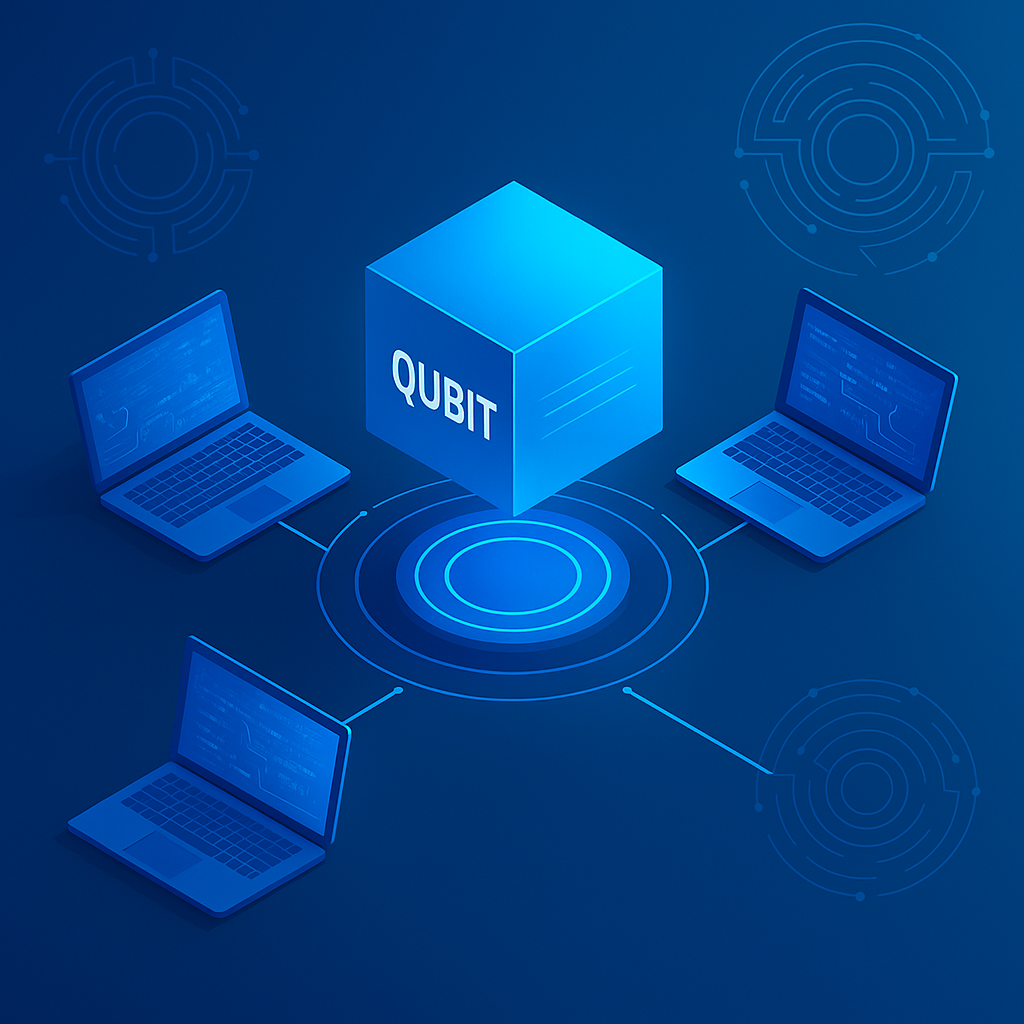
Top AI Agents & Platforms to Know in 2025
1. AutoGPT
The open-source pioneer that introduced multi-agent architecture. AutoGPT can chain together multiple prompts, access web tools, store memory, and adapt to real-world feedback.
2. AgentGPT
Browser-based and beginner-friendly, it allows users to create agents by simply typing goals. Ideal for marketing, research, and content automation.
3. HuggingGPT (by Microsoft + Hugging Face)
Orchestrates multiple expert models for different tasks — image generation, code completion, text summarization — all handled by specific agents.
4. SuperAGI
Built for developers who want to customize their own AI workflows. Offers tools for training, memory, database storage, and feedback learning.
5. OpenAgents (OpenAI)
Still in early stages, but rumored to be the next layer after ChatGPT — with agents that can interact autonomously with other apps.
Benefits of Using AI Agents
- Cost Efficiency: Reduces labor cost and infrastructure overhead.
- Speed: Completes tasks faster than traditional automation.
- Error Reduction: Repeats tasks with high accuracy.
- Scalability: Run 10 or 10,000 agents based on your needs.
- Adaptability: Agents can be fine-tuned to specific business workflows.
Challenges & Ethical Concerns
⚠️ Over-Reliance on Agents
Companies may become too dependent on AI, risking system failures or misjudgments.
⚠️ Data Privacy & Security
Agents connected to live web tools must be monitored for data misuse.
⚠️ Job Displacement
While AI agents increase productivity, they may also replace routine jobs.
⚠️ Misinformation
If not aligned correctly, agents can hallucinate or share incorrect information.
How Businesses Are Adopting AI Agents
- Startups: Use open-source tools like AutoGPT to automate growth marketing.
- Agencies: Build client-facing research agents.
- Enterprises: Develop custom internal agents for ops, sales, and customer support.
- Ecommerce: Deploy bots for inventory, pricing, and customer retention.
Many companies now have AgentOps departments — teams focused on building and training in-house agents.
The Future of AI Agents
In the next 2–5 years, AI agents will:
- Become multi-modal (text, image, voice, video)
- Integrate directly into operating systems and browsers
- Have persistent memory and long-term planning
- Collaborate as teams of agents (swarms or networks)
- Handle sensitive operations with role-based access and trust layers
Final Thoughts
Autonomous AI agents aren’t just a trend — they’re the foundation of the next phase of intelligent computing. In 2025, organizations that leverage AI agents will dramatically outperform those that don’t. Whether you’re a developer, founder, or business leader, understanding and implementing AI agents could be your most strategic move this decade.
Stay ahead, stay smart, and start experimenting with AI agents today — because the future of work is autonomous.

